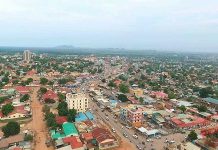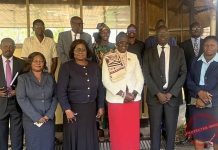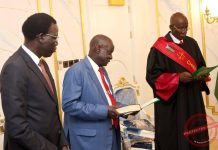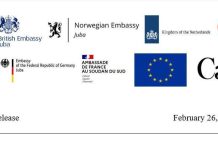By Musa Kpaka
Africa-Press – South-Sudan. Progress has been made from this type of cooperation, but much is still needed to transform the continent. The Chinese have arrived on the scene with the Belt and Road initiative to a mixed reception.
While the North-South relations and the Chinese influence will continue to be a critical part of development cooperation for Africa, leaders on the continent are increasingly seeking more horizontal partnerships based on equity, trust, and shared prosperity.
What Vietnam has achieved in the last thirty years, and what it is on course to achieve in the next, makes the country a good candidate for low- and middle-income countries in Africa to partner with for shared prosperity.
Vietnam’s impressive economic growth in the last three decades is second only to China. In 1985 Vietnam had roughly the same levels of economic output as the Democratic Republic of Congo (DRC) and Sierra Leone, with GDP per capita at $231, $241, and $225, respectively.
In a span of a little over thirty years the country recorded an average annual GDP growth rate of 7 percent, so that by 2020 its economic output/year at $2,786 is at least five times higher than that of the two sub-Saharan Africa countries.
By doing so it essentially eliminated extreme poverty and led to an improvement in the wellbeing of millions of its people. Colonization and persistent conflicts are used as explanatory factors in the narrative for slow economic development on the African continent.
Vietnam offers an alternative story. The country has been able to make huge progress despite a long colonial history and decades of war. Strong political leadership, a state willing to work with private sector, policy experimentation and investment in human capital have been critical for the success Vietnam enjoys today.
Vietnam’s impressive growth has been overshadowed by the ascendency of China and its increasing sphere of influence on the African continent.
However, in the past few years Vietnam’s progress has caught the eye of African leaders because they see similarities and opportunities to emulate what Vietnam has done so well.
At the same time, with an ambition to reach high-income status by 2045, Vietnam seeks new market frontiers and production bases. Although an extremely export-oriented economy, with export value accounting for 201% of GDP, Vietnam’s trade with Africa is limited.
If played well, African nations could gain a lot from Vietnam’s approach towards the continent. Unlike China, Vietnam is unlikely to become another source of financial aid or loans for African governments.
China is Africa’s largest creditor, providing loans used especially to finance large scale infrastructure projects. Arguably, many of these investments aim to facilitate the acquisition of raw commodities to power the Chinese economy.
Technology transfer is limited or non-existent in these engagements. Vietnam on the other hand is offering an opportunity for shared learning and growth. Technology transfer, information sharing and learning by doing together is part of what Vietnam is putting on the table for Africa.
To take advantage of this, African governments seeking partnership with Vietnam should engage with strong leadership and a political commitment at the highest levels towards long-term cooperation.
The cooperation should be based on identified mutual benefits, with clearly defined responsibilities in the cooperation arrangement. The formal partnership should go beyond government-to-government relations and include business-to-business actors, as these can be motivated change agents.
President Julius Maada Bio of Sierra Leone, is the latest African leader to seek cooperation with Vietnam. Seeing that Vietnam transformed itself from a net rice importer to the second largest rice exporter in the world, and his ambition to make Sierra Leone food self-sufficient, President Bio made agriculture and aquaculture the basis of his cooperation.
The two countries signed cooperation agreements on politics and economics, agriculture, and aquaculture. In these agreements, Sierra Leone will benefit from expert advice and technology transfers, whereas Vietnam will have the opportunity produce and process fish and rice from Sierra Leone.
This will further boost productivity in the sectors. Sierra Leone can transform bilateral ties with Vietnam into tripartite relationships, where Western donor funds or even Chinese investments are used to finance joint projects with Vietnamese experts.
President Bio’s delegation in his recent visit to Vietnam also included private sector agents who engaged on a business-to-business level and share the responsibility of sustaining gains from the cooperation.
The global development cooperation paradigm is changing, and Africa needs non-traditional partners to learn from and grow with. Vietnam is one such partner.
https://www.theafricareport.com/195211/why-africa-needs-non-traditional-partners-like-vietnam/
For More News And Analysis About South-Sudan Follow Africa-Press






